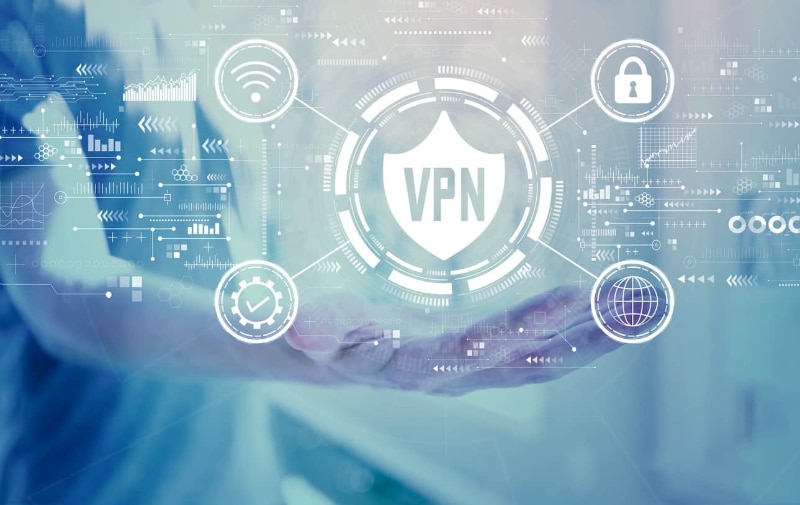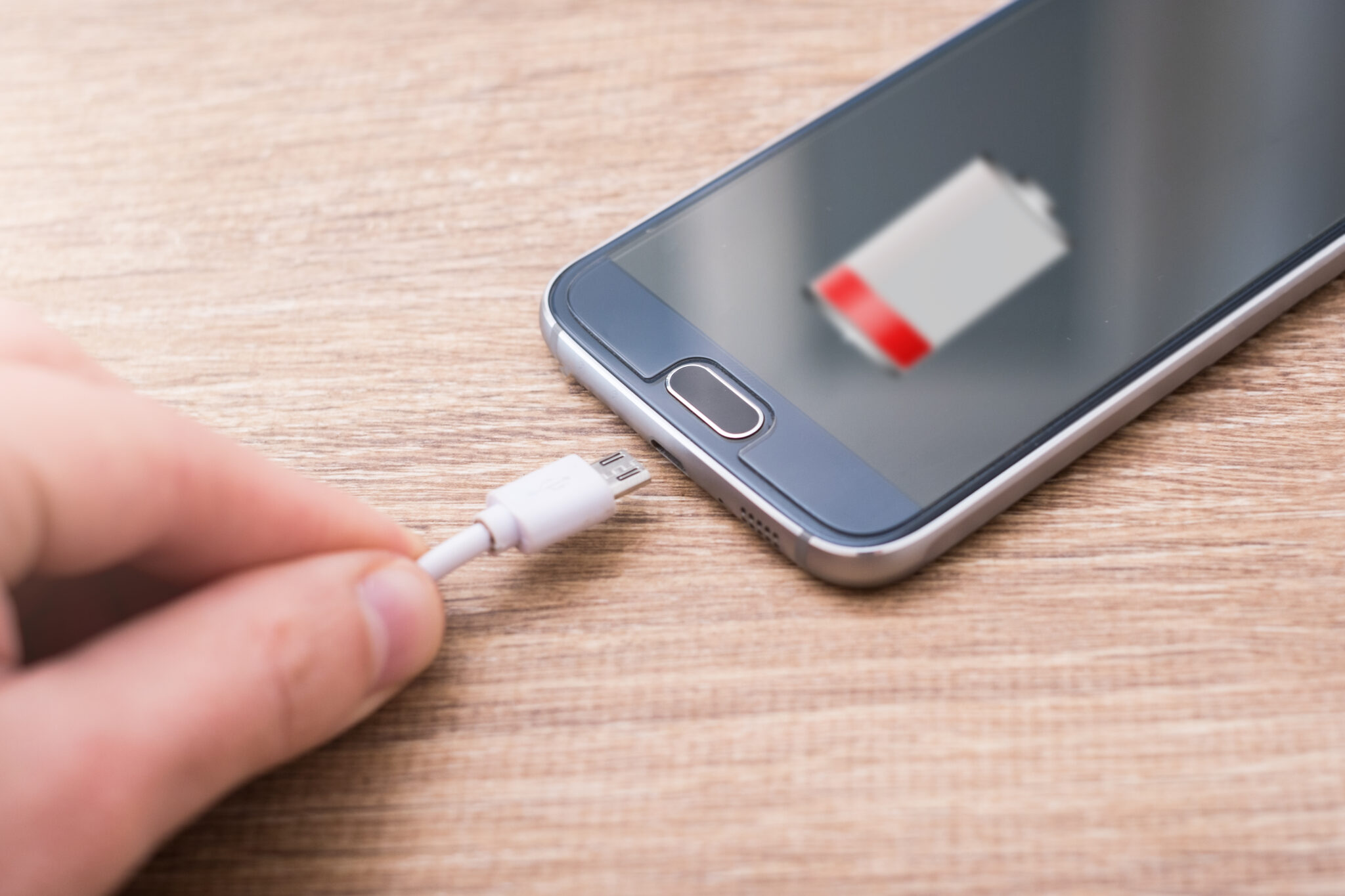The importance of internet privacy is increasing daily, and with it is also growing the significance of VPN services. VPN protects your personal data and ensures that you work on a safe internet connection. Personal data, be it account information or browsing history, has become a highly sellable commodity in digital marketing. This is because it offers key insights into the users’ life, decision-making pattern, and shopping behavior. Using these insights, digital marketers customize their marketing campaigns and target the particular user.
VPN offers the much-needed shield for users to protect them not just from letting their personal data be safe, but also protect them from various types of phishing and malicious threats. For many years, VPN was considered a service needed only by those working on highly confidential work or who wanted to avoid detection. Even today, the average user is still unsure whether they should use a VPN connection or not.
In this article, we discuss this major debate. Starting from what VPN is and how it works, we will talk about the benefits of VPN and answer the question as to why everyone should use a VPN connection in their daily lives.
What Does VPN stand for?
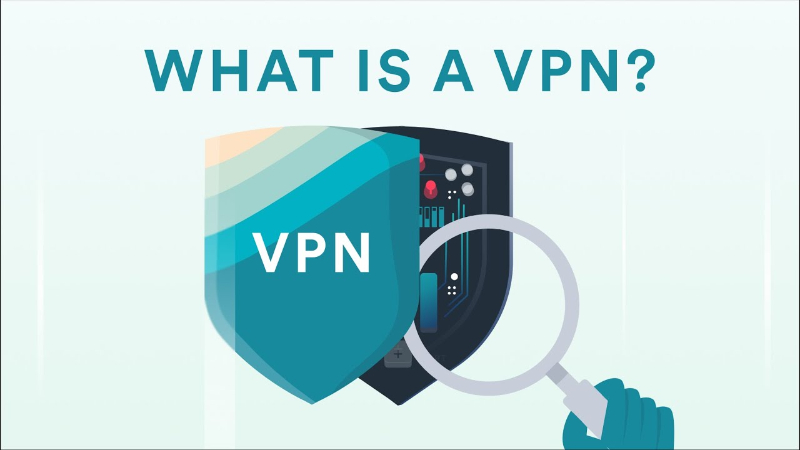
VPN stands for ‘Virtual Private Network’. As the name suggests, it creates a highly safe and secure connection to the internet network and allows you to browse the world wide web with a higher level of security. Fundamentally a VPN creates an encrypted passage that protects your communication with the internet and other personal details like your IP address, username, passwords and also browsing history. A VPN becomes all the more important when you are using public Wi-FI networks where safety breach chances are high. There are mainly three types of Virtual Private Network services:
1. Remote Access VPN:
The most common example of remote access VPN is how companies provide a secure internet connection for employees to log in to work remotely. The rise in work-from-home culture is fuelling the use of this type of VPN. All companies want to ensure that their servers and data are highly secure. To ensure this, they ensure that only people with the right access connect to their servers using secured internet connections. That is why they use remote access VPN, which creates the required shield to guard the company data and allows smooth operations for the employees to work from any network.
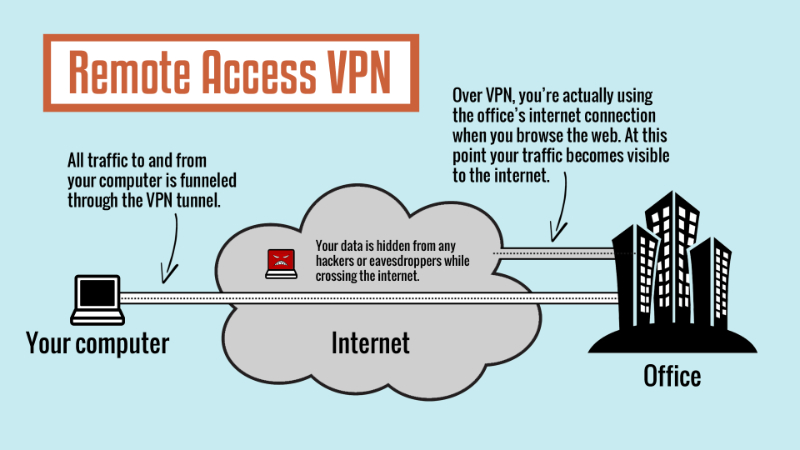
2. Personal VPN:
With the rising internet security awareness, more and more users are opting for VPN services. Most of the consumer-grade VPN services available today for secure internet connection are considered personal VPNs. Their operations are similar to remote access VPN. The only difference is that in place of connecting to your company’s secured server, you are connected to the server of the Virtual Private Network provider. VPN encrypts your data and ensures privacy and security throughout your browsing sessions. You will have to download the particular VPN service provider’s application and configure it before use. Even some free VPNs provide these services, but such free VPNs are not very reliable.
3. Site to Site VPN:
VPNs that are specially configured to connect two different intranets or remote sites are classified as the site to site VPNs. These VPNs are generally used by large organizations with teams sitting in multiple locations. The VPN connects the intranet or the local network of all these sites and allows the remote teams to communicate and share data through a secured internet connection. Establishing such a VPN connection is resource intensive and complicated; hence, only large businesses opt for it. However, they offer a very secure platform for the company to operate.
Each type of VPN connection has its advantages and disadvantages, be it level of security or cost of setup. For personal use, you would be engaging with personal VPN service providers, but it is essential that you also understand the other uses of VPN and their significance.
How does VPN work with the Internet Service Provider?
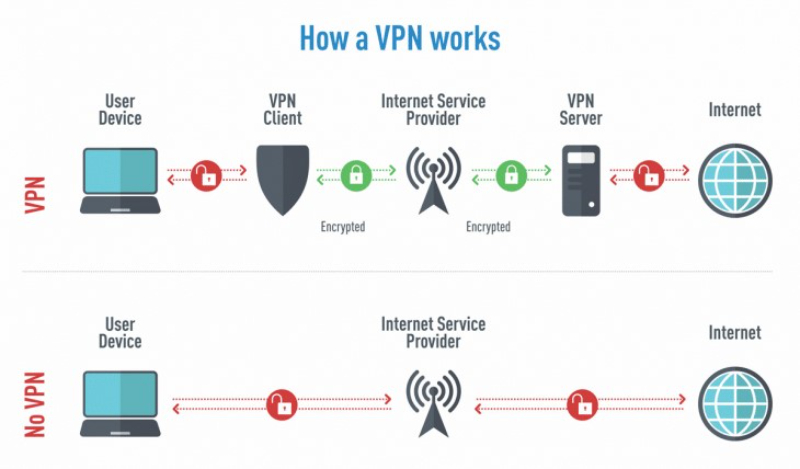
One of the first use cases of Virtual Private Network was done by tech giant Microsoft in 1996, wherein they created a special secure connection allowing their employees to connect remotely to their company’s servers. Silicon valley soon realized the value in this process, and other IT companies started replicating it, refining it as per their needs. Very soon, all IT companies were using VPN servers, and in the last decade, the trend has shifted towards normal users as they also want to secure their personal data.
In routine operations, when you surf the internet, you provide inputs to your web browser. It then shares those details with your Internet Service Providers (ISP). The ISP then redirects the query to the correct servers that provide the requisite webpages that are then loaded in your web browser. Hence, there is a continuous interaction between your web browser and the ISP and in this process, your personal data is often shared with the ISP or the website you visit. Also, you are vulnerable to various malicious security threats in such an open connection.
When you are using a Virtual Private Network, its server acts as an intermediary between you and the ISP. Your web browser’s requests are first sent to the VPN server through an encrypted channel. The VPN server then forwards the web requests to the ISPs but masks your details like IP Address, history and more. Hence the ISP would never know from where the web requests are coming. It will then do its job of reverting with the requisite data. The VPN server will then scan the data and also block any suspicious security threats. Only then will it serve the data to the web browser on your system through a safe internet connection.
Your IP Address is the unique identification of the system through which you are browsing the internet. So naturally, you can be tracked down through this unique number. But VPN providers do a fine job of masking your IP address. Hence the ISP would never know which IP address is requesting what data. This way, hackers or other agencies would also be unable to spy on you or record your browsing history, making your web sessions safe, secure and very private.
What are VPN Encryptions & Protocols?
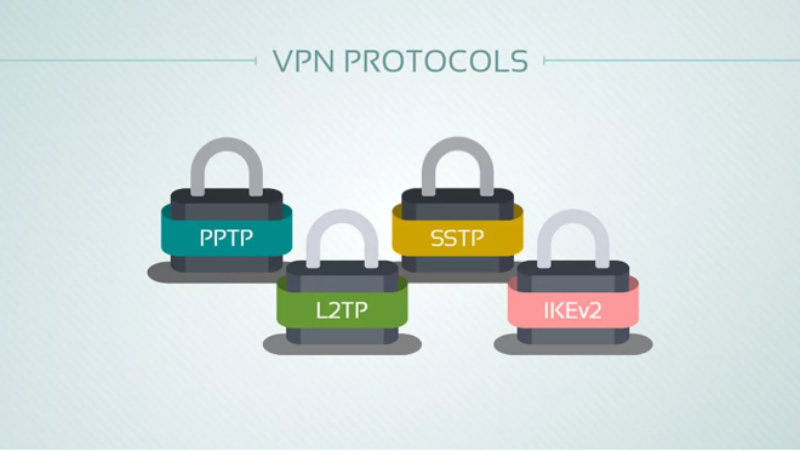
The functioning of all VPN connections is based on encryption – a process in which they convert normal data into a jumbled-up code which is incomprehensible for anyone to understand without the encryption key. So the first step that you would be doing when you start using a VPN is establishing a secured internet connection between your system and the VPN server through such an encryption key. Then, only you and the VPN server would know the web data you generate or request. If anyone tries to intervene, they will not be able to understand the data as they do not have the encryption key.
Transmission protocols are combined with this encryption method to create VPN protocols. They are basically a set of guides and rules between your device and the VPN servers. You can modify the VPN protocols in the settings of the VPN application you have downloaded and set up in your system. Following are the major types of VPN Protocols:
1. OpenVPN:
The most used VPN protocol, OpenVPN, is open-source, meaning the protocol’s source code is available to all. As a result, this protocol is straightforward to set up, and even non-technical users can understand it. In addition, it provides a high level of speed and good security.
2. IKEv2
Internet Key Exchange version 2 (IKEv2) is an encrypted tunnel protocol, and it is used in combination with the IPSec protocol for a very high level of security. Its strength lies in establishing secure connections for internet connections which tend to drop. It is also widely used in mobile devices as it allows easy switching from mobile data to Wi-FI networks.
3. L2TP
Layer 2 Tunneling Protocol (L2TP) is a data transmitting method initially developed by Microsoft and Cisco and served as the successor to the PPTP protocol. L2TP is also combined with IPSec for establishing a secure internet connection. However, while its strength is ensuring a high level of security for data transfer, it is pretty slow as it generates a double layer of protection for the data.
4. PPTP
Point-to-Point Tunneling Protocol (PPTP) served as the inception protocol on which most VPNs worked in the initial days. But now, it is outdated and replaced by far more superior protocols. In addition, it is very to easy to set up and does not need an additional application. However, it is not very secure and hence rarely used now.
What are the benefits of a Virtual Private Network?
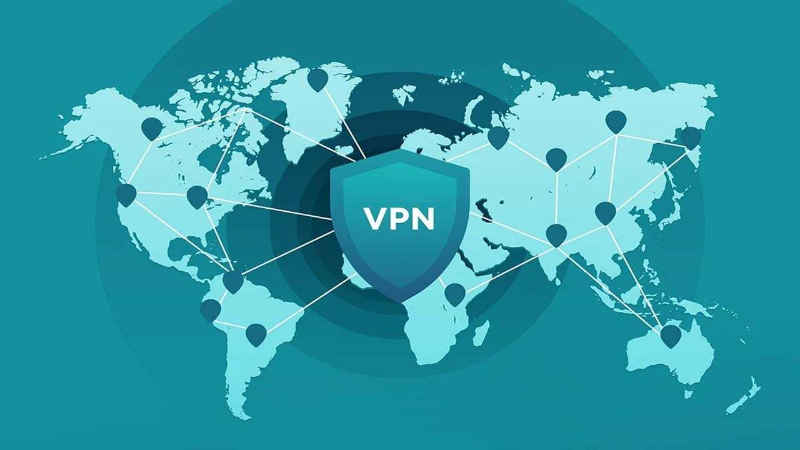
Now that we have understood the technical details of how VPN works, let us look at what are the major advantages of using a Virtual Private Network:
1. Mask your IP Address:
The first benefit of using a VPN connection is that it can mask your IP address. This means that the ISP could not locate your virtual and physical addresses. As a result, you would now be able to access the internet traffic without regional restrictions. Sometimes, certain content is not accessible in certain regions, but with a VPN provider, you can access the content. The same is the case with geo-based content serving as ISPs deliver ads and content based on your location, which you can avoid using a virtual private network.
2. Encrypts your Data:
Data protection and privacy have become very important in the age of highly competitive digital marketing. Your personal information, browsing history and other data combine to provide your behavioural data set. Marketing companies thrive on this data set as they use it to create customized marketing campaigns for you. They know what you like, where you buy from and how you do your shopping and try to place them in an advantageous position. VPN encrypts your data and ensures that your personal data and privacy are not compromised.
3. Protects Devices:
According to a report by the University of Maryland, every 39 seconds, there is a new attack somewhere on the web. This could be in the form of a website getting hacked, new ransomware being discreetly distributed, or a malicious app being downloaded on the phone, irrespective of the operating systems. The frequency and intensity of cyber-attacks are so high that staying safe online is tough. VPN clients come to the rescue here, providing the critical shield that guards your device against online security threats.
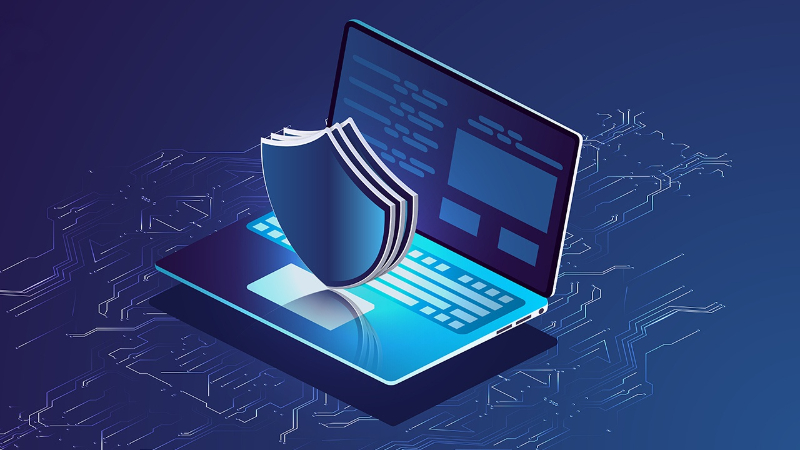
4. Avoid Data Throttling
If you are enrolled with an Internet Service Provider on a limited data pack, then VPN can help you bypass that. Many ISPs provide internet subscriptions based on a specific upper limit of data usage for the highest speeds, and then the internet is provided at a lower speed. Working at a low speed would be frustrating if you have used up your quota. Using an encrypted VPN connection can mitigate this issue as the ISP will not be able to track your identity, so the restrictions would not be imposed. The same is also the case for bandwidth optimization.
5. Secure Public Networks:
Free public networks have become very common in the majority of infrastructures. But their security is always questionable, and if you connect with them without any protection, then there are chances that your device will face a security threat. In addition, public networks are always easy pickings for hackers to steal personal data or push malware. VPN connections help create the required shield across your device that enables you to protect your phone while accessing internet traffic on public networks.
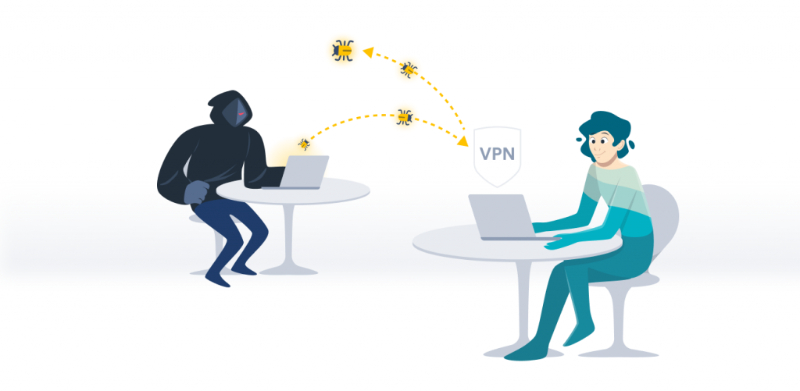
6. Network Scalability:
With remote working being the new trend, establishing a secure network is becoming a major challenge for businesses allowing their employees to work from home or remote locations. In such cases, organizations can opt for VPN servers which will provide all the required security protocols and create an exclusive channel for all employees to connect with the company server. In addition, this method will give a lot of scalability as you can keep adding VPN users and, at the same time, protect your organization and employee data.
Why should I use a VPN Server?
From making your location to protecting your device, VPN offers many advantages to all types of users. Following are the points that will answer the questions related to why and when you should opt for a VPN connection:
1. To exploit Public Networks:
Getting connected to public networks is always tempting as you can use free public Wi Fi networks and conserve your own data plan. But this temptation comes with a risk. Public networks are more prone to hacking attacks, which can result in stealing your personal data or even intense security threats. There have been cases where hackers can get full access to other people’s devices using public networks. To avoid such unfortunate incidents, you should always deploy a VPN client or a VPN app when connecting to a public network and make the most out of the free Wi-Fi.
2. Stream Restricted Content:
One of the most extensive VPN uses amongst youngsters is streaming shows on Netflix that are unavailable in their region. The other use case is for people who are frequent travellers. You pay for a subscription in a particular region, and your internet access is restricted when you go to another country. VPN helps you bypass such geographical restrictions. Using the proper VPN settings, you can access the content of any location from any location. VPN helps make the world wide web indeed worldwide!
3. Block ISP Tracking:
Whatever your Internet Service Providers might claim, they all track your browsing history. They do it for the technical reason of providing your faster and better services. Storing your session cookies ensures that your frequent browsing journeys are quick and responsive. The major problem is that this data is often leaked or even sold to third-party companies who use it to target you with highly customized ads. Using a VPN client, you operate through an encrypted tunnel, ensuring that your browsing history and personal data remain safe.
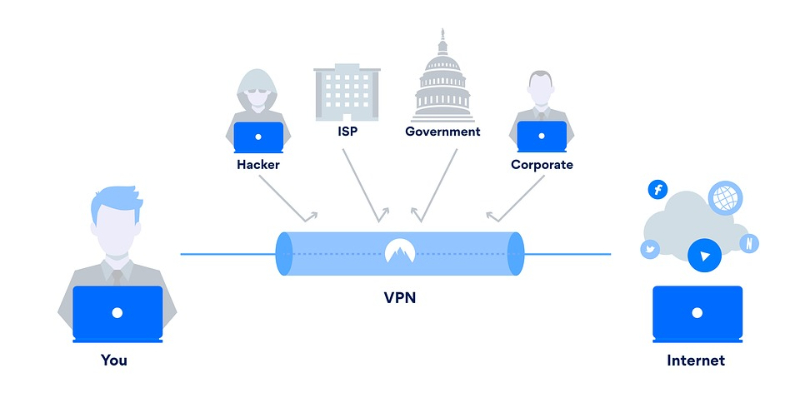
4. Unblock Websites:
Just like content, many websites are restricted in certain regions. For various reasons, governments or even ISPs block certain websites in particular regions. However, with a reliable VPN software, you can easily access this website. Furthermore, VPN helps you mask your IP address; your geographical location is now known. Hence, the ISP would not be able to restrict any type of website for you, no matter your physical location.
5. Get Fair Price Deals:
Few people would be aware that the pricing of many eCommerce websites is location-based. It means that a particular product would cost higher in wealthy regions and would cost way lower in other areas. Based on your geographical location, the website will serve you a price which it thinks a user from your region would be ok to pay. Many times in this, we end up paying higher. You can change your virtual location by using VPN apps and check out the different prices the websites offer to get a fair price.
6. Bypass Targeted Ads:
Targeted Ads have become a massive industry in digital marketing. Brands want to know everything about you regarding your likes, dislikes, payment capacity, etc. Once they know this, they fire targeted ads that are highly effective. Unfortunately, because of such ads, you are robbed of the power of choice and can get carried away sometimes. But if you are using VPN software, the brands would be unable to identify you or collect your personal data; hence, you will be spared the highly customized and well-directed ads.
7. Evade Censorship:
Unlike the first world countries, many nations across the globe are reeling from online censorship. It means that the ruling government would have imposed certain sanctions, and thereby an array of websites would not be available to the residents of those people. Many Asian countries face a considerable amount of censorship. VPN apps can come to the rescue in such regions as it will let you bypass the existing censorship. Your ISP will not be able to track your location, so regional restrictions will not be imposed on you.

8. Financial Transaction Security:
One of the most important uses of VPN connection is to execute important and heavy financial transactions. Credit cards, bank accounts and other financial elements are always the targets of hackers as they would want to get access to that information and rob you of your money. This is why many users strictly use a VPN while conducting financial transactions to ensure that their transaction details are not leaked on the internet traffic.
9. Unblock Social Media:
Like content and websites, many social media websites and applications are also banned in certain regions. The most common example is China. You can’t even access Whatsapp in UAE, Saudi Arabia and many other countries. While it is a problem for the local people, it is a bigger problem for people travelling to these regions as they may not be able to access the usual social media platforms. Hence, they, too, need to use VPN on their devices which will bypass the regional restrictions and access blocked websites and social media platforms.
10. Anonymous Browsing:
The most common use of VPN servers is for browsing without being tracked. As a user, you want to protect your personal data and privacy from hackers and ISPs. At the same time, there may be certain websites you would like to visit. But you would not want these surfing sessions to be tracked back to you. A VPN app can help you in such cases as no one will know what or why you are surfing.
Above are only some of the major benefits that you can avail once you start using a secure connection through VPN client software to create a secure tunnel and browse the internet traffic safely and reliably.
What to look for when choosing a VPN Service?
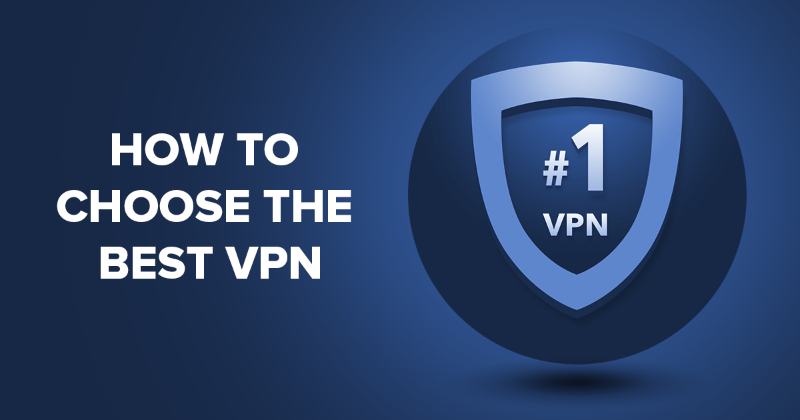
Now that you are convinced about why you need a VPN, it is time to figure out what you need to consider when choosing a VPN connection. While there are many reliable names in the market, they offer various services at different prices. The following points can help you figure out which one works best for you:
1. Security Features:
The apparent reason you are opting for a VPN is security; hence, you must ensure that the VPN you choose has all the needed security features. Check out for features like no-log generation, hidden anonymity policies and other small but essential protection tools like hiding IP and kill switches to ensure your activities are safe and secure.
2. Number of Servers:
When we talk about a ‘VPN Server’, it is a nest of various servers. The capacity of VPN providers is directly linked to the number of servers it has. Therefore, it would be wise to check out the number of servers the VPN provider is giving, as a large number of servers means better bandwidth and speed.
3. Location of Servers:
Along with the number of servers, it is also essential to check their location. As a VPN user, you would want the flexibility of virtually transporting yourself to almost any part of the world. This is important if you want to bypass geo-based censorship or access content of different regions. At the same time, if you want a VPN for other activities, then the server location must be near you for better access.
4. Reliable Encryption:
Encryption is the heart of a VPN, and without reliable encryption technology, the VPN will not be convenient even if it gives superfast speed at no cost. Figuring out the encryption protocols for VPN service providers may get a bit technical, but you can still figure out which is better. Then, depending on your usage and need, you can use the correct encryption methods to ensure your privacy and keep your identity untracked.
5. Accessible Everywhere:
Once you start using a VPN, you assume it will work everywhere. Unfortunately, this is far from true. A variety of VPNs are blocked in many regions of the world. This point is all the more important if you travel a lot and use VPNs in different regions. Always check out which regions do not support the particular VPN service provider; otherwise, you would end up having a VPN which itself is blocked.
6. Provision for Static IP:
A static IP is not something all users may need, but specific applications and tools demand a static IP. Generally, a VPN allocates a dynamic IP that keeps changing with location or time. Hence, opting for a VPN provider that lets you get a static IP is a good feature, as you may never know when you need it.
7. Browsing Speed:
Along with security, you would also expect speed from your VPN service provider. It is a myth that more secure VPNs are less fast. Good VPNs would give you both – a high level of security and superfast speed. The speed depends on encryption technology, the number of servers of the service provider and other factors. Generally, this speed becomes the most distinguishing feature amongst VPNs.
8. Ease of Use:
There was a time when VPN services were used only by technical people who understood its working well. But today, VPN is being used by average users. Hence the VPN application must be easy to set up and use. You would not want to get a VPN service which is way too complex, and you get lost trying to figure out how to make it work. Also, do check if the VPN clients can be used across multiple devices to access online traffic.
9. Technical Support:
Whether VPN or any other online service, it is crucial to get robust and reliable technical support. Whether you like it or not, there are chances that you might get stuck somewhere and would need troubleshooting. VPN users, need to ensure that the VPN provider is facilitating 24×7 chat or phone support or is just giving email support which takes days to resolve issues.
10. Pricing & Subscription Models:
The final and most important aspect is the cost of a VPN. Many VPNs in the market claim to provide free services, but these free VPNs are either unreliable or very slow. In liue of providing you with free VPNs, they may steal your data. Major players offer various VPN services depending on the features you need. Also, check out their subscription plans, as that might be an opportunity to save money.
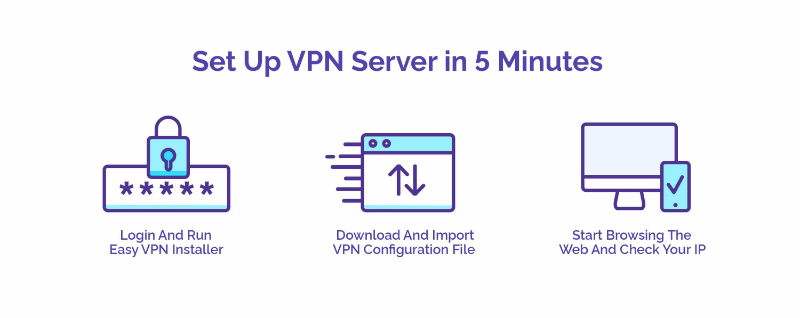
The importance of the points mentioned above will depend on your VPN usage. If you plan to use it for general browsing sessions and to access blocked websites, then the most standard VPNs would serve you well at a low cost. Do not go overboard in getting more security features if you do not need them, as they may come at a premium cost.
Many VPN providers offer a free trial period; you can check them out to see if they fit your needs. Following are the major reliable VPN providers:
- NordVPN – Good VPN for Privacy
- Surfshark – Good VPN for Security
- Private Internet Access VPN – Works well for Windows
- IPVanish – Good VPN for Android
- Ivacy – Highly Affordable
- ExpressVPN – Very Good Encryption
- PureVPN – Good Server Base
- CyberGhost – Works well for Mac
- Hotspot Shield – Ideal for Netflix
- Norton Secure VPN – For Dynamic IP Addresses
The best part about the above VPN service providers is that they are effortless to use and are very customer-centric, and you can rest assured that your needs will be easily fulfilled. Using a VPN service is a trend which is multiplying. Users are now more aware of the value of their privacy and how their data is stolen and misused by ISPs.
Gone are the days when only professional cyber experts only used to use VPNs. Even an average teenage internet user prefers to route his web requests through VPN servers and establish a secure connection. To use or not to use a VPN is a personal choice, but what is for sure is that without using a VPN, your privacy and personal data will be vulnerable, and you will face increased levels of security threats.
